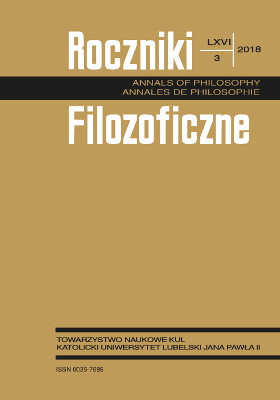Archaeology of Cognitive Science: Michel Foucault’s Model of the Cognitive Revolution
Archaeology of Cognitive Science: Michel Foucault’s Model of the Cognitive Revolution
Author(s): Marek HetmańskiSubject(s): Philosophy, Epistemology, Special Branches of Philosophy, Philosophy of Science
Published by: Towarzystwo Naukowe KUL & Katolicki Uniwersytet Lubelski Jana Pawła II
Keywords: archaeology of knowledge; cognitive science; epistemology; knowledge; science discipline; Michel Foucault
Summary/Abstract: The article presents an epistemological and partially methodological analysis of cognitive science as a scientific discipline, created as a result of the transformations that took place in the philosophical and psychological concepts of the mind and cognition, which were carried out with the aid of tools and methods of modelling as well as through simulating human cognitive processes and consciousness. In order to describe this interdisciplinary (transdisciplinary) science, and its positions, as well as the stages and directions of its development, it makes use of the epistemological model formulated by Michel Foucault, in which he draws attention to social, ideological and technological conditions of scientific knowledge (episteme). The opinions of the leading creators and critics of cognitive science, such as George A. Miller, Howard Gardner, Margaret Boden and José Luis Bermúdez are referenced to and analyzed with the use of this model. The article shows the epistemologically and methodologically divergent status of cognitive science, as well as its cognitive and institutional conditions and challenges, which stand before it after half a century of intensive development.
Journal: Roczniki Filozoficzne
- Issue Year: 66/2018
- Issue No: 3
- Page Range: 7-32
- Page Count: 26
- Language: English

